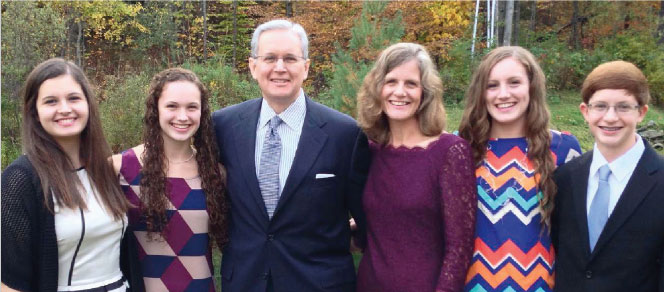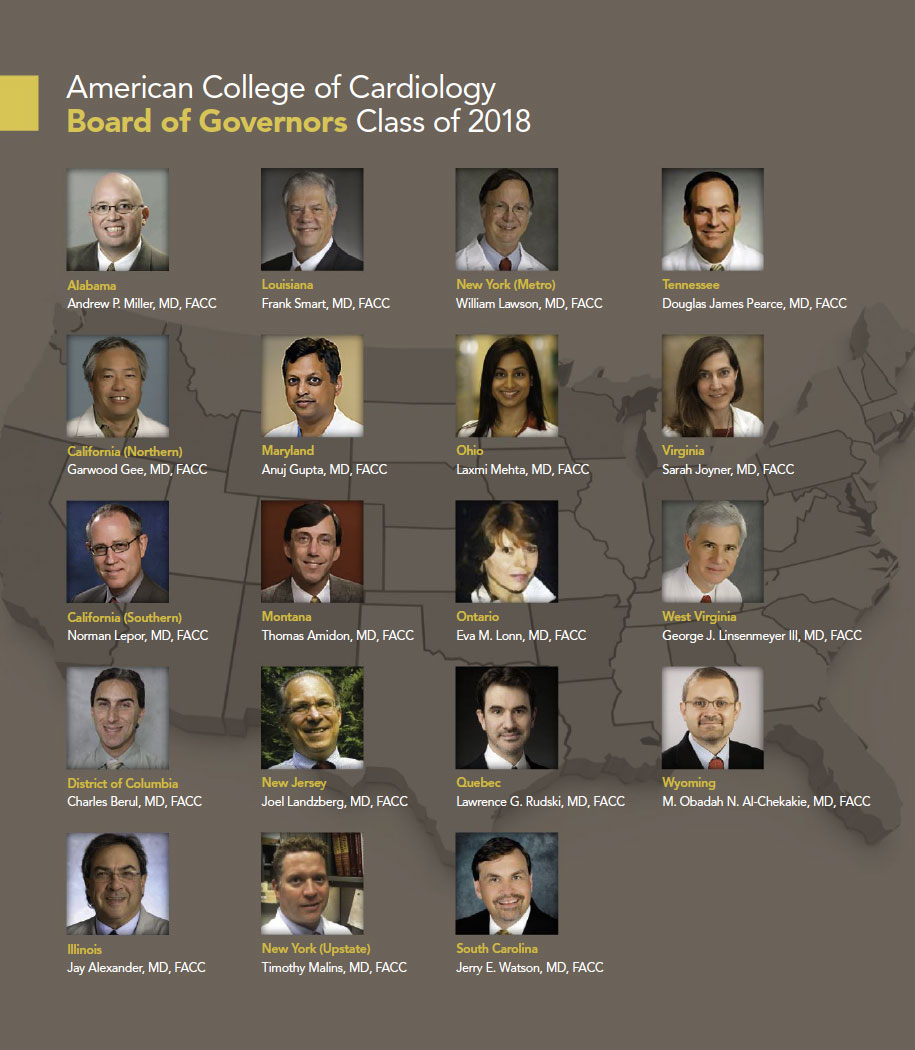Get to Know Your Leaders: Michael Mansour, MD, FACC, Board of Governors Chair | Cardiology Magazine
Get to Know Your Leaders | At mile 17, their packs felt heavy but their fatigue was overshadowed by the sense of accomplishment of completing another hike for Boy Scout Troop 4071. This two day trek through the woods of a Mississippi state park was an important adventure for father and son.
Like so many ACC members, ACC’s new Board of Governors (BOG) Chair and Board of Trustees (BOT) Secretary Michael Mansour, MD, FACC, is a busy practicing cardiologist and a dedicated father. On that day, he wasn’t a leader among his peers, or the face of ACC’s Chapter system, he was a partner to his Boy Scout son who earned the hiking merit badge. Together, they banked a memory to last a lifetime.

“Our four teenage children are involved in many activities, including community service and sports,” says Mansour. “We enjoy following all of their undertakings, and while it makes for a full agenda every day, we love sharing all of these experiences with them.” Mansour and his wife, Kathleen Mansour, MD, FACC, work tirelessly to balance quality family time in their hometown of Greenville, MS, with their life’s work and passion — cardiovascular medicine.
In his new role as BOG Chair, Mansour will lead a body of 66 Governors from all 50 states, the District of Columbia, Puerto Rico, Canada, Mexico and the U.S uniformed services, elected to facilitate communication between College leaders and members in the state they represent.
“ACC Chapters and the BOG are the feet on the ground, the front door to the College, and the window to the cardiovascular world,” said Mansour. “We exist to help members best interact with patients and navigate changes in the health care environment.”
While Mansour has been a member of the BOG and president of the Mississippi Chapter since 2011, the road to ACC leadership began back at Millsaps College in Jackson, MS, where he took an interest in physiology. After graduation, Mansour headed to the University of Mississippi School of Medicine where he worked with esteemed physiologist and cardiovascular medicine pioneer, Arthur Guyton, MD, FACC, and focused on the specialty of cardiology.
“Cardiology seemed to have endless opportunities to make an impact in the health of so many people, especially in the area where I grew up,” said Mansour. “Mississippi has the highest incidence of cardiovascular disease and death in the U.S.”
Before coming back to his home state to help tackle the health crisis through the practice of medicine and involvement in the ACC, Mansour completed his internal medicine residency at the Ochsner Foundation Hospital in New Orleans, going on to serve as chief fellow in cardiology at the University of Florida School of Medicine, and interventional fellow in cardiology at Beth Israel Hospital at Harvard Medical School. He later served as assistant professor of medicine at the University of Florida, followed by spending time as a clinical assistant professor of medicine at Emory University. Now, Mansour is an affiliate faculty in the department of medicine at the University of Mississippi School of Medicine and a cardiologist at Delta Regional Medical Center in Greenville.
Throughout all of these experiences, the ACC has been a common denominator.
“I always understood the importance of the College from the time I was a fellow at the University of Florida,” he said. “The faculty were heavily involved in the ACC, including Richard Conti, MD, MACC, who was president of the ACC at the time, and Carl Pepine, MD, MACC, who was on the BOT and served as BOG Chair and ultimately went on to become ACC President.”
However, it wasn’t until Thad Waites, MD, FACC, a friend of Mansour’s from Mississippi, served as president of the Mississippi Chapter and asked Mansour to take on the role of chapter counselor — which serves as an advisor to the chapter president and governor to the ACC — that he really began to get involved.
“I love the College because it represents the very best of what medicine is to me: the advancement of science, the enhancement of education, the promotion of quality and the pursuit of advocacy always acting in the best interest of the patient,” said Mansour.
He adds that being involved in the College makes it easy to see how much the ACC benefits members and patients. “The positive energy of the College is kinetic and encourages me to also want to make a contribution — to give back all that it has given to me,” he said.
Mansour is hoping the excitement he felt in getting more involved with the ACC will spread as the ACC begins to implement its five-year Strategic Plan, and Chapters become the place for a groundswell of making a difference for cardiovascular professionals and patients.
“There is an enormous opportunity to get involved and make an even stronger impact at the local chapter level this year,” said Mansour. “The Chapters and Governors are ambassadors of the College and serve to keep information flowing in both directions for the greater good of our mission to transform cardiovascular care and improve heart health — locally and nationally.”
Mansour believes that by starting at the Chapter level, the ACC and its members can have a dramatic impact on the “beneficial influence” that cardiovascular medicine and surgery have to prolong and enhance lives.
“Ultimately, I believe our greatest contribution can be in prevention and population health as the best way to improve people’s productivity and longevity in a cost effective way,” said Mansour.
At the helm of ACC Chapters, Mansour is actively working to ensure members are engaged and mission-focused, which in turn means that more people, free of cardiovascular disease, can share special moments with their families — like that recent 17 mile hike through the Mississippi woods.

Keywords: Trustees, Cardiology, Schools, Medical, Longevity, Cardiovascular Diseases, Religious Missions, Leadership, Cardiology Magazine, ACC Publications
< Back to Listings

